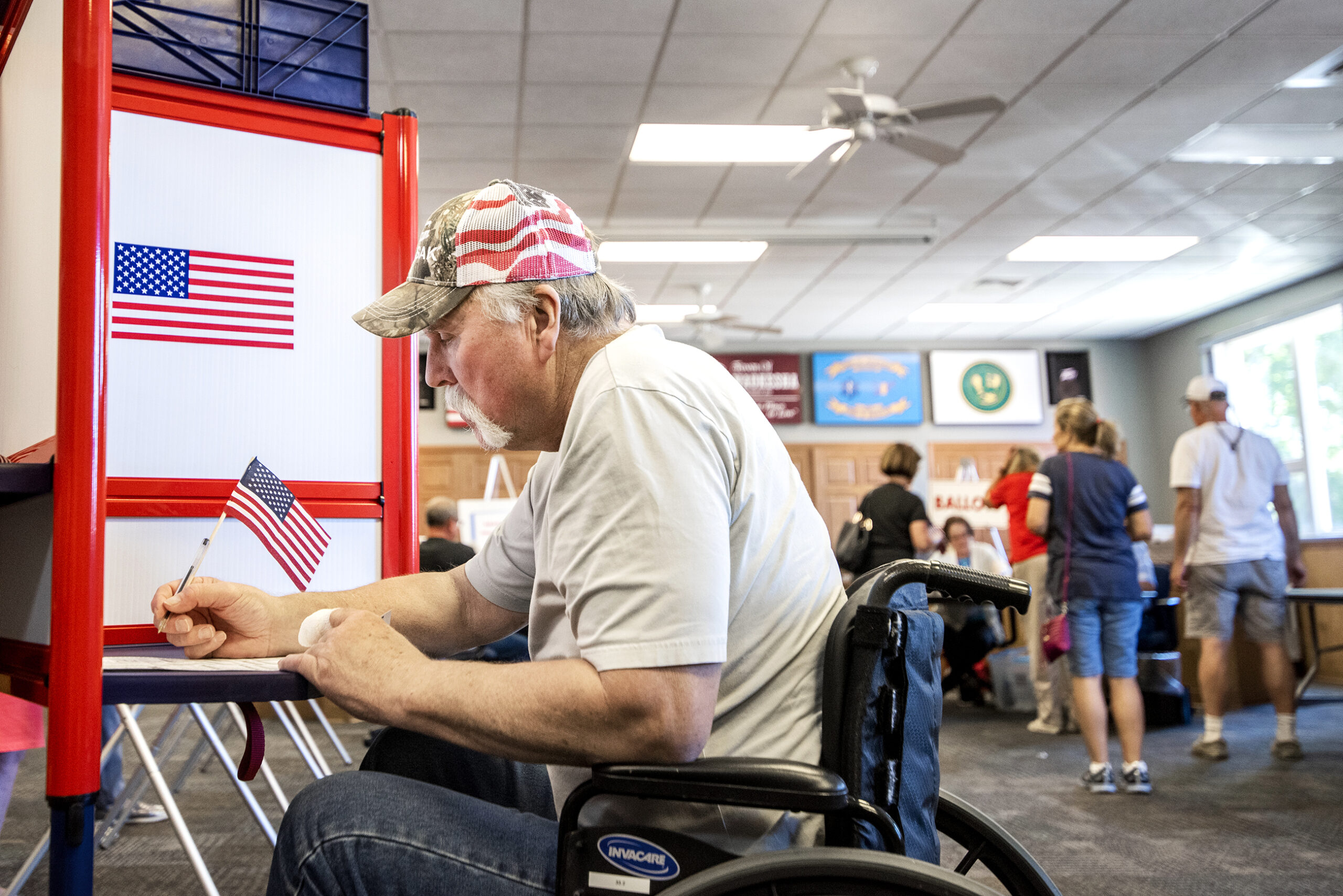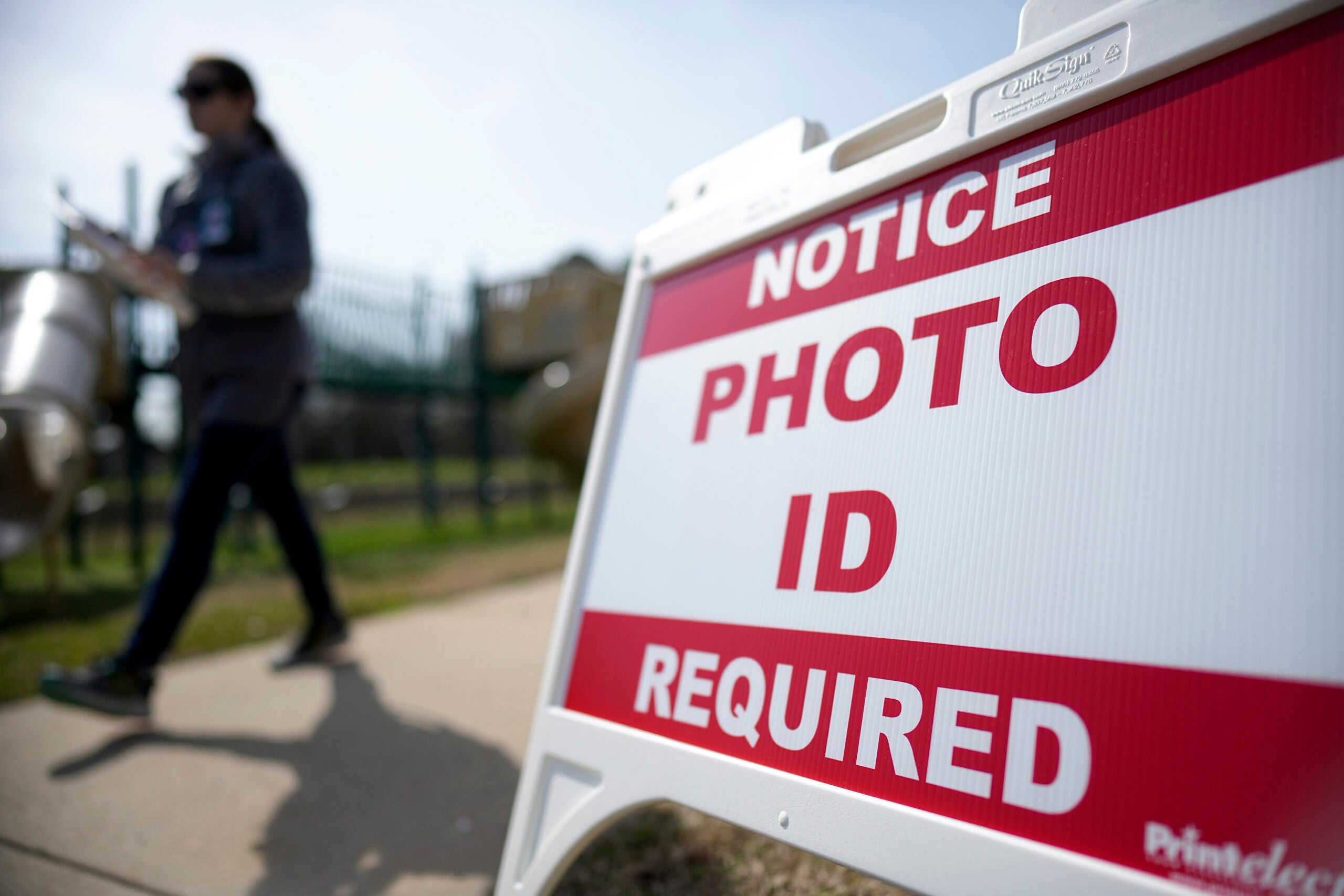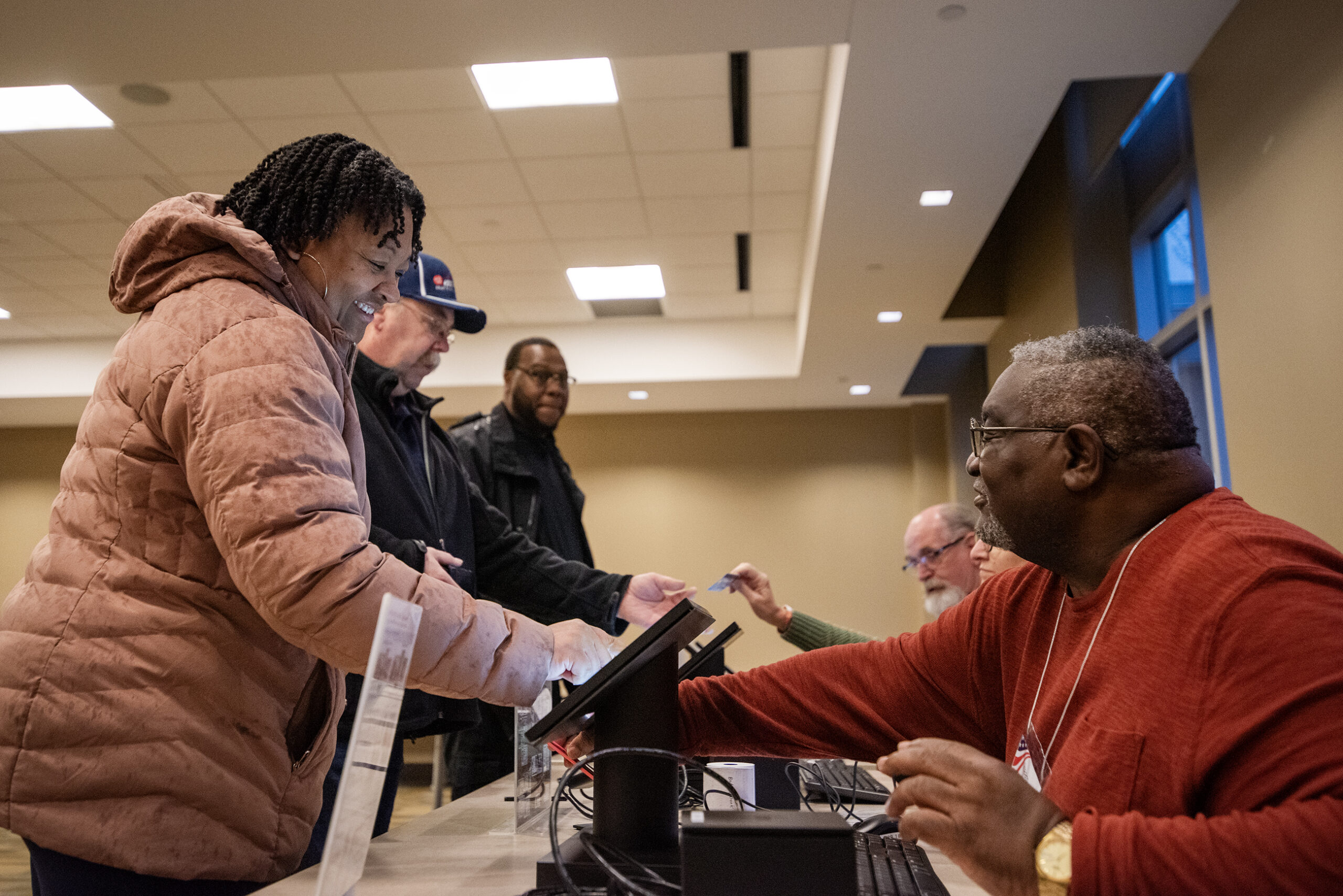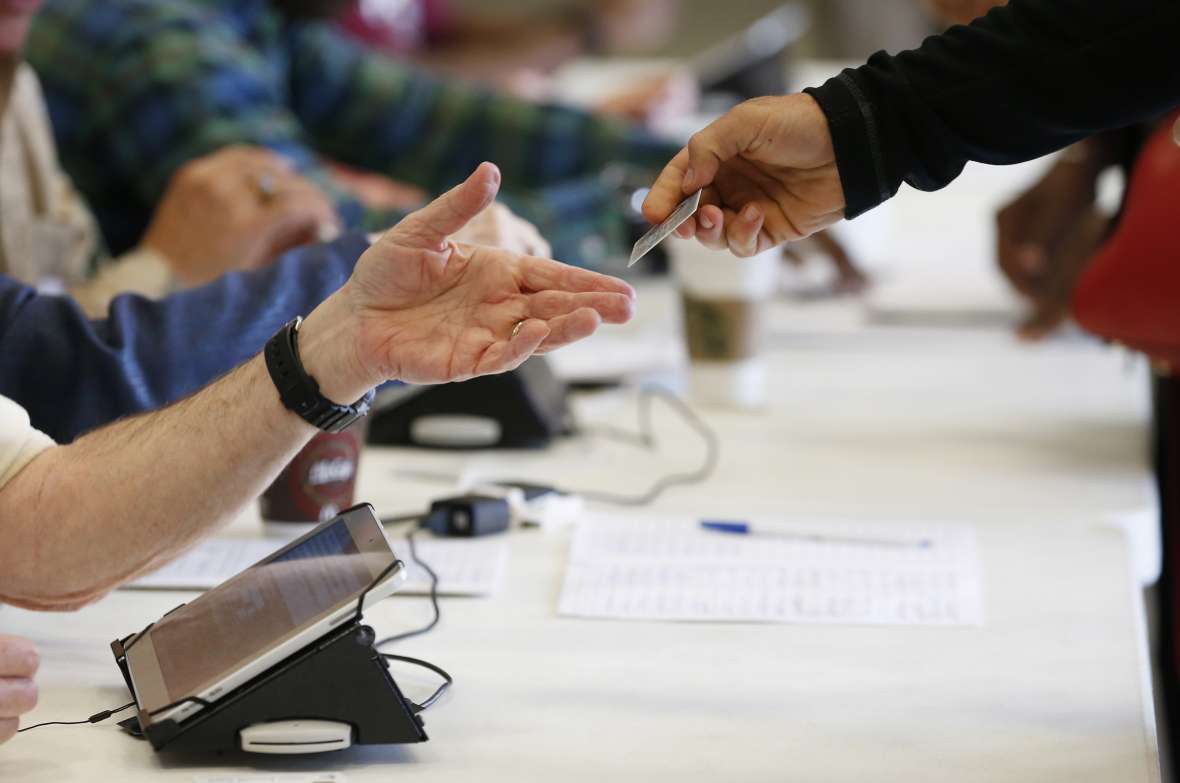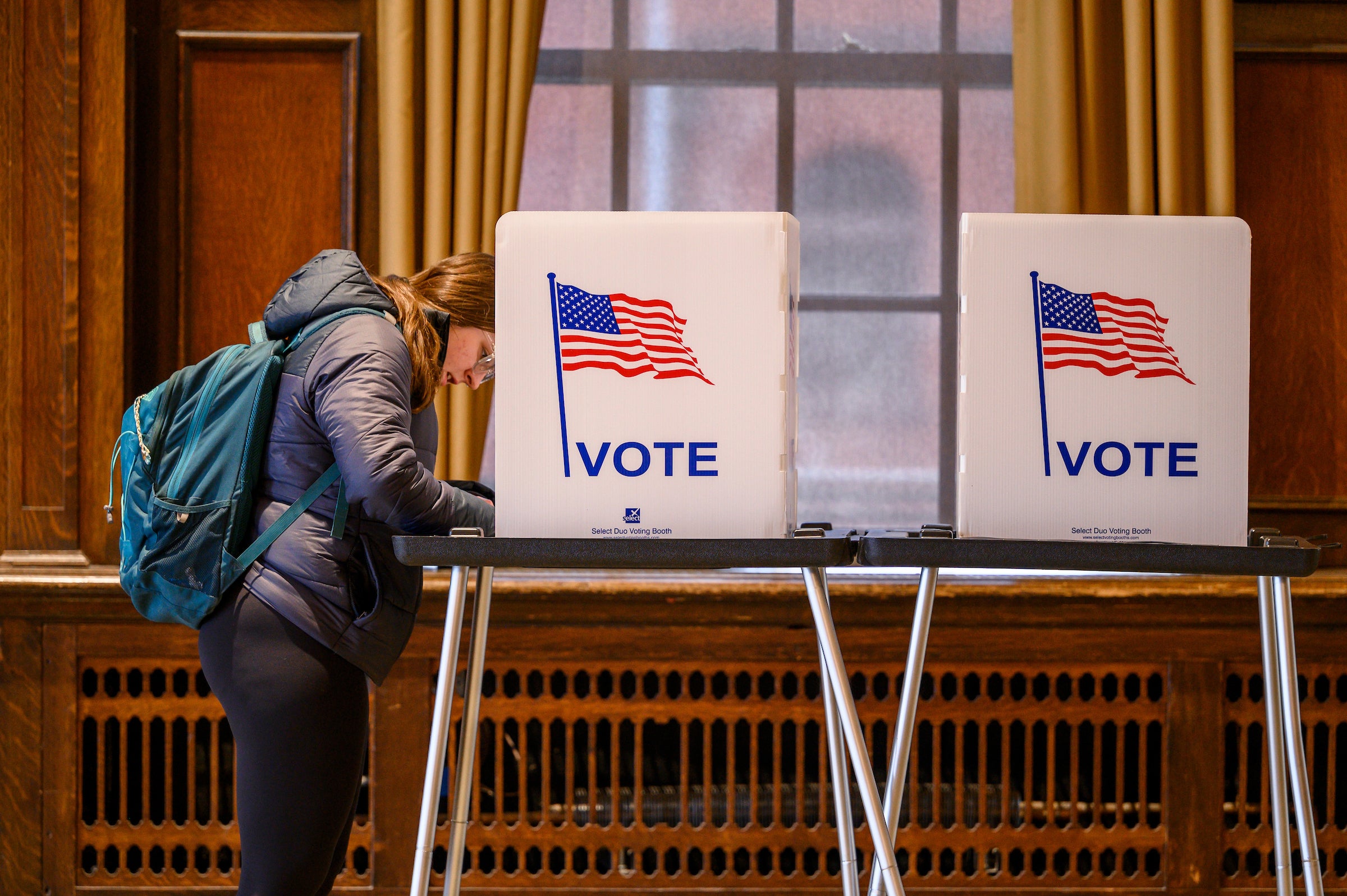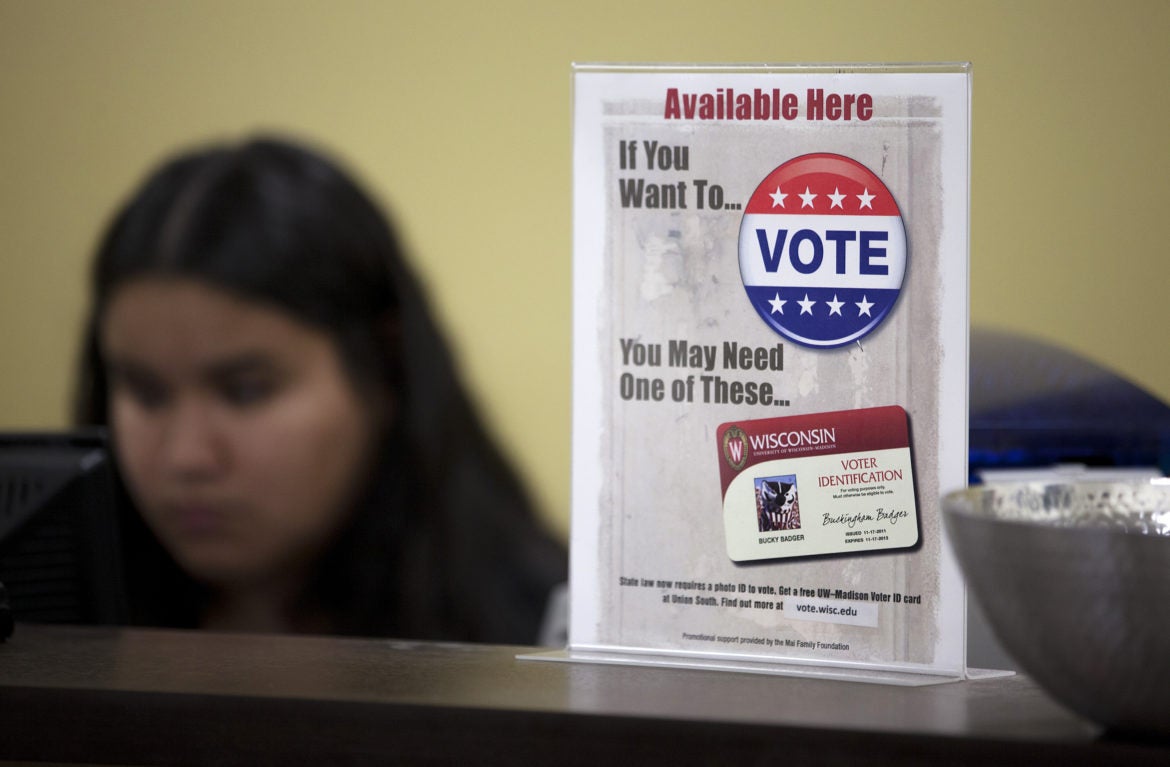Wisconsin’s photo identification requirement for voters would become enshrined in the Wisconsin Constitution under a proposal making its way through the Legislature, a move GOP lawmakers say is aimed at preventing the new liberal majority on the state Supreme Court from doing away with the law.
Republicans are also weighing other changes to the state Constitution that would affect voters, including a ban on non-citizen voting and a ban on the use of private funds for elections.
Members of the public weighed in on the three proposed amendments at a public hearing on Tuesday. To be approved, the resolutions would have to pass two consecutive legislative sessions and then be approved by voters. They would not be subject to a Governor’s veto.
Stay informed on the latest news
Sign up for WPR’s email newsletter.
The voter ID proposal would render permanent a state law requiring a voter to show photographic proof of identity before casting a ballot. Supporters of ID laws say that they’re a shield against voter fraud, while opponents say that they serve to discourage voting.
“I cannot say for certain how the Wisconsin Supreme Court would rule on voter ID laws, but I’m also not willing to risk the Wisconsin Supreme Court declaring voter ID laws unconstitutional,” said Sen. Van Wanggaard, R-Racine, at Tuesday’s joint hearing of the Senate Shared Revenue, Elections and Consumer Protection Committee and Assembly Campaigns and Elections Committee.
“The only way to ensure it will not happen is to enshrine this basic election integrity law in Wisconsin’s constitution,” he added.
That proposal is newly introduced. It would have to pass two legislative sessions in a row, meaning the earliest it could land before voters would be 2025.
Wisconsin’s voter ID law faced years of legal challenges
Wisconsin’s voter ID law has been controversial since it was enacted under Gov. Scott Walker in 2011, facing a host of lawsuits. It was ultimately upheld in both state and federal court, but a challenge has not yet been filed before the state Supreme Court’s new liberal majority.
Critics of these laws say that it presents an obstacle to voting, and that some communities — including people of color, low-income people, urban dwellers and students — are less likely to have access to required forms of identification. They argue that those groups are more likely to vote Democratic, and that ID laws thus functionally target Democrats.
One 2017 study from the University of Wisconsin-Madison suggested the ID law depressed turnout in the 2016 contest between former President Donald Trump and Hillary Clinton, although it did not measure which party affiliation non-voters may have aligned with.
That was the first major election in Wisconsin with the ID law in place.
Republican lawmakers on Tuesday argued that voter participation has only grown since the ID law was enacted.
Advocates for people with disabilities argued Tuesday that these laws make it harder for people to cast a ballot.
“There’s a few main reasons for that,” said Lisa Hassenstab, the public policy manager at Disability Rights Wisconsin. “Primarily transportation, to be able to get to the DMV, accessibility once they get there, in some circumstances, and also access to the documentation that’s required in order to access a photo ID.”
Proposed amendments follow complaints about the 2020 presidential election
The other two proposals already passed the Legislature last session and could go before voters as early as next year.
The restriction on using outside funds comes after many communities accepted grant money from an organization founded by Mark Zuckerberg, Facebook founder, aimed at improving voter access during the height of the COVID-19 pandemic. Wisconsin’s five largest cities — all Democratic strongholds — were awarded several million dollars in 2020.
Republicans have said those grants amounted to improper outside influence. Some conspiracy theorists have gone further, alleging the money perpetuated voter fraud, although multiple audits and investigations have repeatedly affirmed President Joe Biden’s victory in Wisconsin and other swing states.
A Dane County Circuit Court judge ruled last year that Madison’s use of the private money was constitutional. A federal judge also rejected a lawsuit challenging the grants before the 2020 presidential election.
An earlier attempt by the Republican Legislature to block such private grants in state law was vetoed by Gov. Tony Evers.
The proposal to ban non-citizens from voting comes as some states have allowed non-citizens to vote in local elections.
Sen. Julian Bradley, R-Franklin, said the proposed ban on non-citizen voting in Wisconsin would prevent the Dairy State from being one of them.
“I know some legislators believe this is unnecessary. But this is a simple, straightforward solution to a problem that threatens our constituents most fundamental right: the right to vote,” he said.
Lawmakers are also weighing a separate bill — rather than a constitutional amendment — that would set up an exchange between the Wisconsin Elections Commission and the Department of Transportation so that the citizenship of each Wisconsin voter can be verified.
It is already against federal law for non-citizens to vote in national elections.
Wisconsin Public Radio, © Copyright 2025, Board of Regents of the University of Wisconsin System and Wisconsin Educational Communications Board.
